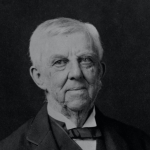What large, dark hands are those at the window
Lifted, grasping the golden light
Which weaves its way through the creeper leaves
To my heart's delight?
Ah, only the leaves! But in the west,
In the west I see a redness come
Over the evening's burning breast —
The woodbine creeps abroad
Calling low to her lover:
The sun-lit flirt who all the day
Has poised above her lips in play
And stolen kisses, shallow and gay
Of pollen, now has gone away
— She woos the moth with her sweet, low word,
And when above her his broad wings hover
Then her bright breast she will uncover
And yield her honey-drop to her lover.
Into the yellow, evening glow
Saunters a man from the farm below,
Leans, and looks in at the low-built shed
Where hangs the swallow's marriage bed.
The bird lies warm against the wall.
She glances quick her startled eyes
Towards him, then she turns away
Her small head, making warm display
Of red upon the throat. His terrors sway
Her out of the nest's warm, busy ball,
Whose plaintive cry is heard as she flies
In one blue stoop from out the sties
Into the evening's empty hall.
Oh, water-hen, beside the rushes
Hide your quaint, unfading blushes,
Still your quick tail, and lie as dead,
Till the distance folds over his ominous tread.
The rabbit presses back her ears,
Turns back her liquid, anguished eyes
And crouches low: then with wild spring
Spurts from the terror of his oncoming
To be choked back, the wire ring
Her frantic effort throttling:
Piteous brown ball of quivering fears!
Ah soon in his large, hard hands she dies,
And swings all loose to the swing of his walk.
Yet calm and kindly are his eyes
And ready to open in brown surprise
Should I not answer to his talk
Or should he my tears surmise.
I hear his hand on the latch, and rise from my chair
Watching the door open: he flashes bare
His strong teeth in a smile, and flashes his eyes
In a smile like triumph upon me; then careless-wise
He flings the rabbit soft on the table board
And comes towards me: ah, the uplifted sword
Of his hand against my bosom, and oh, the broad
Blade of his hand that raises my face to applaud
His coming: he raises up my face to him
And caresses my mouth with his fingers, which still smell grim
Of the rabbit's fur! god, I am caught in a snare!
I know not what fine wire is round my throat,
I only know I let him finger there
My pulse of life, letting him nose like a stoat
And down his mouth comes to my mouth, and down
His dark bright eyes descend like a fiery hood
Upon my mind: his mouth meets mine, and a flood
Of sweet fire sweeps across me, so I drown
Within him, die, and find death good.


















Comment form: